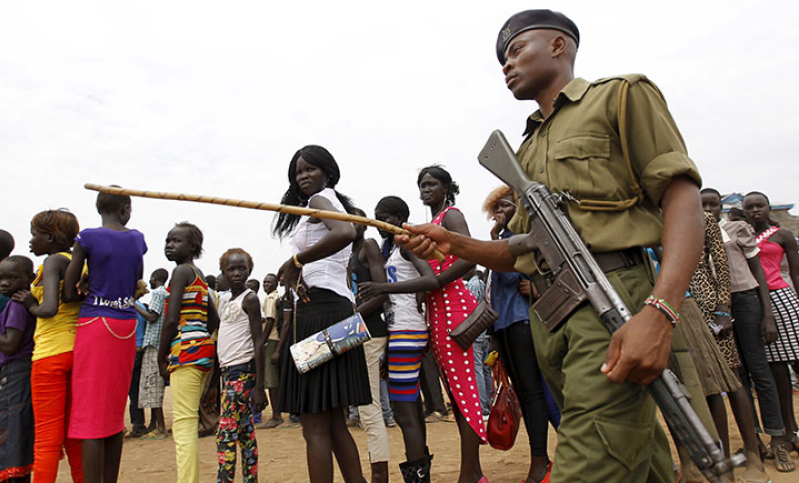
Despite having an international arrest warrant on him, Sudan President Omar al-Bashir managed to avoid getting detained in South Africa. His government has been accused of brutally persecuting Christians and other minorities in that country.
According to Joe Sandler Clarke of the Guardian, Bashir was allowed to fly out of South Africa even though an international warrant called for his arrest. Dr. Abiodun Williams, who works for the think tank The Hague Institute for Global Justice, blasted the failure of the South African government to arrest him as a betrayal of Nelson Mandela's legacy.
"It is in my view a clear abuse of executive authority by the South African government," Williams said. "Nelson Mandela made the case that South Africa, because of its history, would make human rights a touchstone of its foreign policy, and that access to justice and respect for international law would guide South Africa's interactions with other nations."
Williams added that "the Bashir case is not in keeping with Mandela's ideals."
Clarke reported that Bashir is wanted by the International Criminal Court, or ICC, for alleged war crimes in Darfur dating back to 2003; the UN has estimated that 300,000 people died in that conflict. He was in South Africa to attend an African Union summit chaired by the president of Zimbabwe, Robert Mugabe.
According to James Copnall of BBC News, Bashir stated back in 2010 that after South Sudan formed its own country, there would "be no time to speak of diversity of culture and ethnicity." That view has played out in the continuing trial of two Presbyterian pastors in Khartoum, raising questions on how Sudan treats Christians and other minorities under its interpretation of Islamic or sharia law.
"The Reverends Yat Michael and Peter Yen have been charged with several offenses, including undermining the constitutional system, waging war against the state, and espionage," Copnall wrote. "The first two charges carry the death penalty."
Amnesty International highlighted the charges the two pastors, who are currently being held by the Sudanese National Intelligence Service, faced. Both men have been accused of "criminal conspiracy," "undermining the constitutional system," and "insulting religious creeds."
"It is believed that the two pastors were arrested and charged due to their religious convictions," Amnesty International wrote.
The NGO added that it considered Michael and Yen as "prisoners of conscience, arrested, detained and charged solely because of their peaceful expression of their religious convictions." It also highlighted the harshness of Sudan's Islamic law on minority groups.
"Sudan's legal system allows and promotes the conversion of the Sudanese people from Christianity and other religions to Islam, but makes proselytizing of Sudanese Muslims a crime punishable by flogging," Amnesty International wrote. "Conversion from Islam is considered apostasy, and is punishable by death."
Amnesty added that "violations of freedom of religion is widespread in Sudan," particularly against minority groups.
According to BBC News, Rev. Tut Kony, pastor of the South Sudan Presbyterian Evangelical Church, stated that the pastors' arrest "is nothing new for our church."
"Almost all pastors have gone to jail under the government of Sudan," Kony said. "This is their habit to pull down the church. We are not surprised. This is the way they deal with the church."
However, Copnall pointed out that another factor, not just religion, played a role in Sudan's other conflicts in Darfur, South Kordofan and Blue Nile regions.
"Almost everyone in Darfur and Blue Nile is Muslim, regardless of whether they support the rebels or the government or dislike both," Copnall wrote. "The issue there is more closely linked to ethnic discrimination, with those seen as 'Arabs' given preferential treatment over those perceived to be 'Africans.'"






